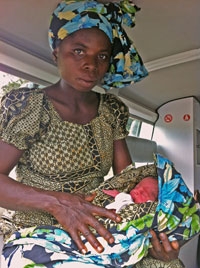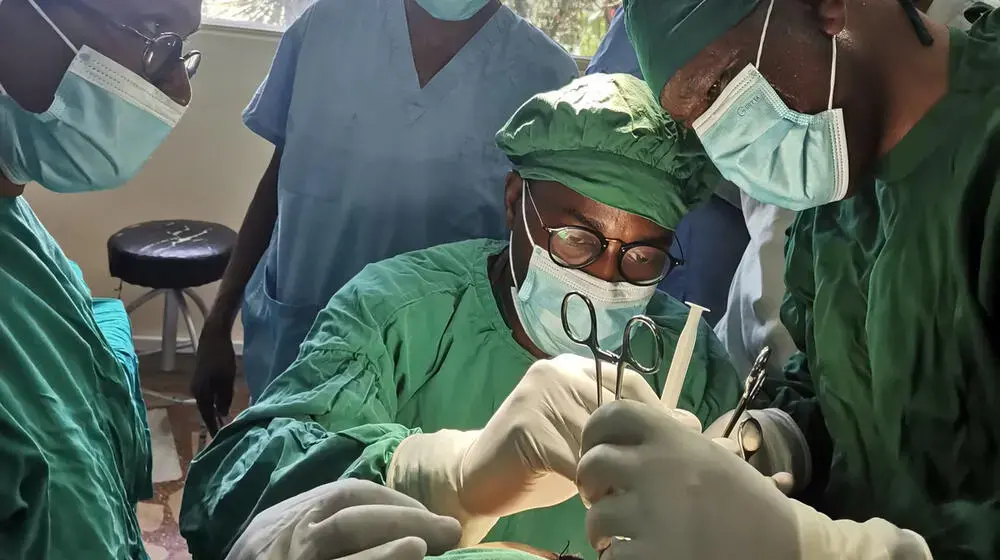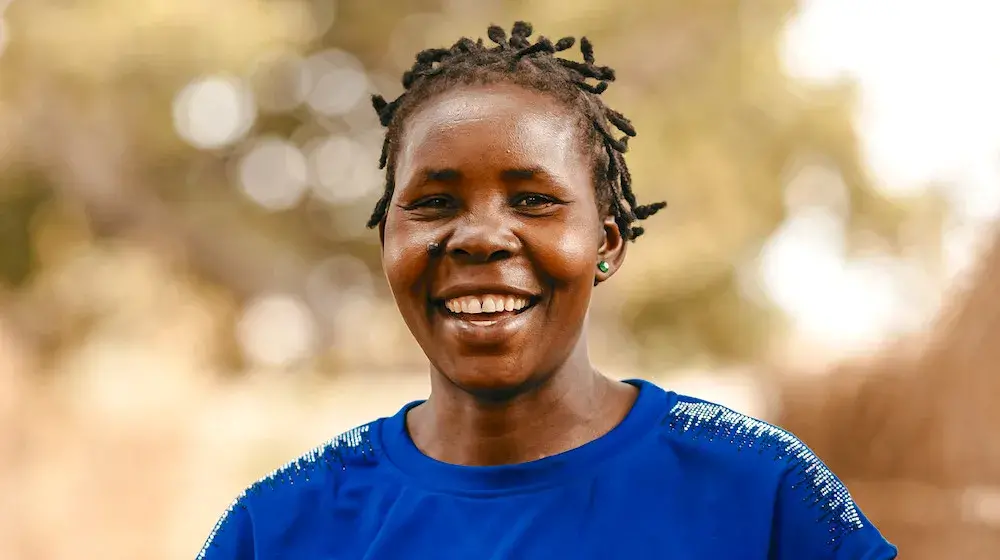KAMWENGE DISTRICT, Uganda — Alice Furaha, 22 years old, was five months pregnant when she fled her home in Eastern Congo last May. When she arrived at the border with Uganda, Alice was taken to the transit centre in Kisoro and transferred to Rwamwanja settlement camp in Kamwenge district.
Having experienced a still birth just last year, she was worried about the prospects for delivering safely in a refugee camp.
In the past eight months, fighting with the M23 rebel group in the Eastern part of the Democratic Republic of Congo (DRC) had intensified. The rebellion forced over 60,000 Congolese to flee to neighbouring countries and displaced nearly 600,000 people within the country. The sudden influx of refugees strained existing services in the Kamwenge district in the South West region of Uganda. Addressing the needs of some 300 pregnant women was a particular challenge.
Women were seen delivering in their tents. Only one ambulance was available for 10 to 12 women each month who experienced complications and needed emergency obstetric care. Medical equipment and supplies as well as human resources for health are not sufficient to provide quality lifesaving pregnancy and delivery care, according to a report to the UN from Central Emergency Response Fund (CERF). CERF has provided more than $200,000 to UNFPA as part of an overall contribution of $6.8 million to the emergency situation in Uganda.

Photo: UNFPA Uganda
On 26 August, Alice delivered a healthy baby boy at Fort Portal regional referral Hospital, about 80 kilometres from the settlement camp. "When labour pains started, I went to the Ramwanja Health Centre expecting that everything would be okay, " Alice recalls. "I was shocked to be told by the midwife that I was going to be referred to Fort Portal Referral Hospital because my baby was in distress." Luckily for her, a Uganda Red Cross Society ambulance was mobilized with support from UNFPA so that Alice could receive the care she needed.
Ambulances are in short supply at the camp. In one month, four babies perished because the mothers could not get emergency care quickly enough. Fortunately, in these cases the mothers survived. However, as only one ambulance was available to take women to the regional referral hospital, another woman had to wait for more than six hours to receive emergency care.
According to UNFPA Country Representative Janet Jackson, CERF funding has helped strengthen the level of care provided to refugees.
“We have been able to introduce new dimensions to the registration process for refugees arriving at the camps. Every pregnant woman is registered as she arrives. Also, volunteers have been mobilized from the host community and from the refugees to ensure that women access care during pregnancy, during childbirth, and afterwards. This includes ambulance services in the event of emergencies, in addition to receiving a dignity kit. The volunteers have also been trained to provide support to survivors of gender-based violence. All these are innovations that would not have been possible without the CERF funding,” she said.
The CERF funding has enabled the Uganda Red Cross to get one of its ambulances re-deployed for mothers in the refugee settlement who need emergency obstetric care. This simple service has significantly increased access to emergency cases at the hospital. And it helped save the life of Alice and her baby.
~ By Penninah Kyoyagala Tomusange and Veronica Njikho, UNFPA Uganda




